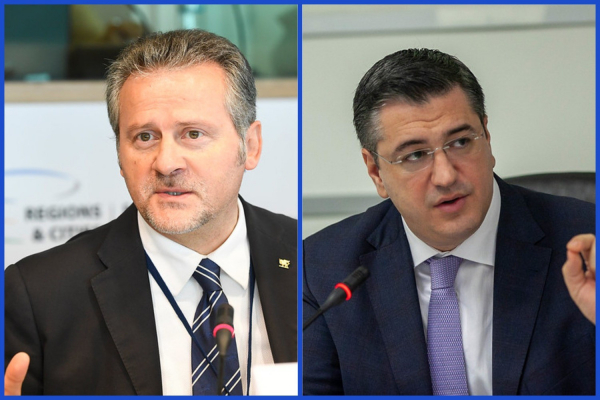Europe Day 2020 - a new milestone

This year's “Europe Day" celebrated on May 9th, was overshadowed by the coronavirus pandemic which continues to be a trying experience for the EU. The EU needs to learn lessons from this experience and re-examine the contemporary European governance structure. This crisis is not the end of the European project, but instead represents an opportunity to launch a Europe that is closer to its citizens, especially on the local dimension.
The ongoing pandemic has shown how interdependent Europeans are on one another. The EU, national governments, regional and state governments, have diligently worked with towns and villages to find optimal solutions. Mayors, ministers, and local councilors have been key allies on the frontline in this struggle.
What is clear is that the current paradigm, of a “two dimensional Europe" which relies chiefly on EU institutions and national governments has fallen short. The EU needs to incorporate, local and regional representatives in roles as full partners in EU decision making. That said, the EU has taken decisive action in this crisis, deploying funds to lower unemployment, stockpiling medical supplies and dispensing loans to small and medium sized enterprises. To react even more quickly in times of future crisis, the EU should adopt additional preventive budgetary measures.
The key, however, remains supporting localities. When it comes to lockdown measures, re-opening regional economies and acknowledging the needs and concerns of citizens, centralized power cannot effectively respond to challenges arising from a crisis at the local and municipal level. It is vital that the EU puts its trust in regional and local leaders and is supportive of locally based initiatives. The pandemic has proven that regional and local leaders have been the main players in slowing the pandemic, ensuring the delivery of basic consumer goods, protecting jobs, promoting better healthcare, and supporting smaller scale local businesses.
Secondly, EU cohesion policies which reduce economic inequality and improve the resilience of regions, cities, and villages across Europe, need to be strengthened. Europe must stand in solidarity with all those who have been hurt by this plight. Solidarity goes hand in hand with unity and responsibility, principles which we need at all levels of government so to best serve citizens. These principles, of cohesion, solidarity and responsibility must be taken account regarding the multiannual EU budget, so no region and no citizen is left behind. As we emerge from this crisis, economic recovery must now become the priority for the EU. We must not only provide support for small business but review and repeal measures that unnecessarily exacerbate their current difficulties.
Furthermore, The EU recovery fund should finance both an EU Health Emergency Mechanism and an EU Pandemic Coordination Centre. The EU must provide financial support as a way of giving assistance to regions who have experienced a loss of revenue in this crisis. Additionally, the EU needs to support the increasing demand for digitalization (especially in public services) and provide regional aid programs for small to medium sized enterprises, all while not forgetting rural areas.
To conclude, rather than top-down directives from Brussels, what is need is a bottom-up approach, based on the real needs and contributions of European regions, cities towns and villages. There are currently more than one million local and regionally elected representatives across Europe. They will be the essential component in the renewal of the European Union. The European Committee of the Regions will continue to make their voices heard and support the democratic tradition.
Local and regional governments are not solely Europe's roots; they are a fundamental pillar of the EU. This Europe Day, we are not discussing an abstract or distant future of the EU, instead we are talking about the present, because all Europeans need an active Europe, now more than ever. Working together to overcome difficulties and disasters is certainly nothing new for the EU. In the post-war period, a European community of nations emerged, aimed at protecting us from further conflicts and unifying us in solidarity.
The COVID-19 crisis is not the end of the European project, but rather an opportunity to launch a new Europe that is closer to its citizens, in their regions, cities and villages.

